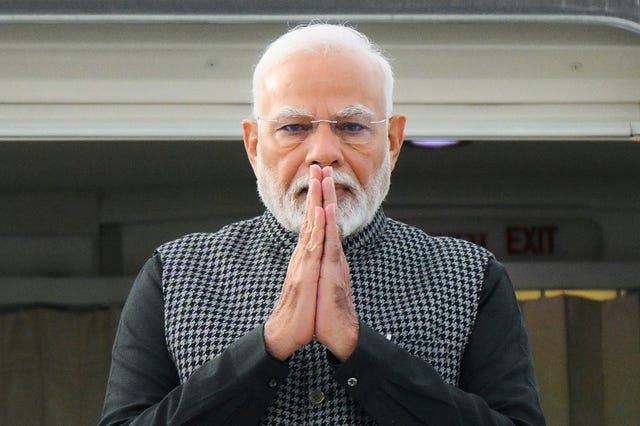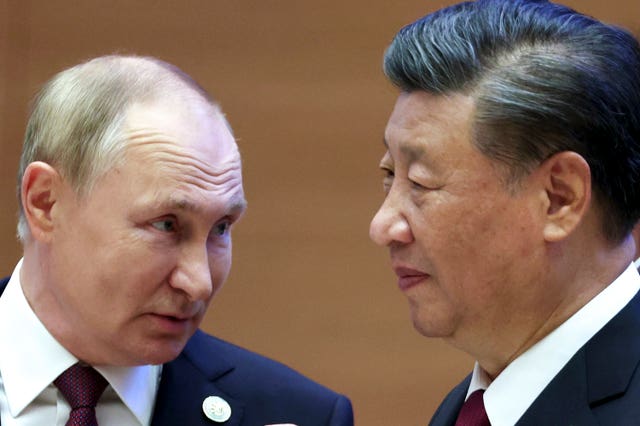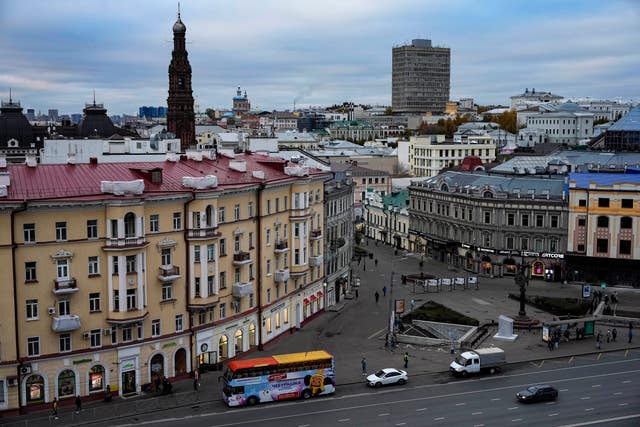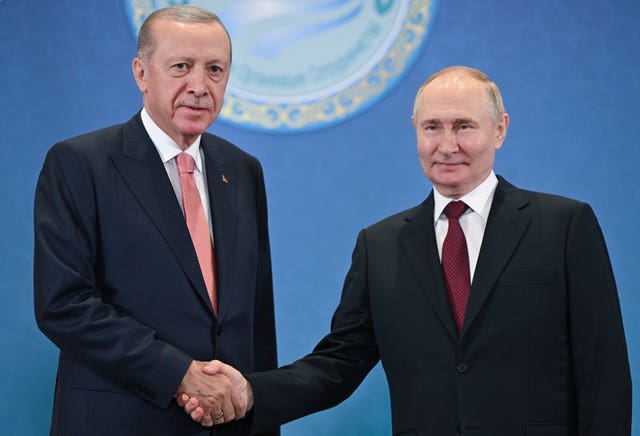Putin hosts Brics summit to show the West it can’t keep Russia off global stage
The Brics summit in Kazan aims to counterbalance the Western-led world order.

Russian President Vladimir Putin is to host a meeting featuring China’s Xi Jinping, India’s Narendra Modi, Turkey’s Recep Tayyip Erdogan and Iran’s Masoud Pezeshkian this week, defying predictions that the war in Ukraine and an international arrest warrant would turn him into a pariah.
The leaders will appear in the Russian city of Kazan for a meeting of the Brics (Brazil, Russia, India, China, South Africa) bloc of developing economies.
The alliance, which aims to counterbalance the Western-led world order, initially included Brazil, Russia, India, China and South Africa, but is expanding rapidly.

Iran, Egypt, Ethiopia, the United Arab Emirates and Saudi Arabia joined in January; Turkey, Azerbaijan and Malaysia have formally applied, and a number of others expressed a desire to be members.
Russian officials already see the meeting as a massive success. Mr Putin’s foreign policy aide Yuri Ushakov said 36 countries confirmed their participation, and more than 20 will send heads of state.
Mr Putin will hold around 20 bilateral meetings, Mr Ushakov said, and the summit could turn into “the largest foreign policy event ever held” on Russian soil.
On the sidelines of the summit, Mr Putin also will meet United Nations Secretary-General Antonio Guterres, Mr Ushakov said. It will be the first visit to Russia in more than two years for Mr Guterres, who has repeatedly criticised Russia’s war in Ukraine.

Analysts say the Kremlin wants the optics of standing shoulder-to-shoulder with its global allies amid continued tensions with the West, as well as the practicality of negotiating deals with them to shore up Russia’s economy and its war effort.
For the other participants, it is a chance to amplify their voices and narratives.
“The beauty of Brics is that it doesn’t put too many obligations on you,” said Alexander Gabuyev, director of the Carnegie Russia Eurasia Centre.
“There are not that many strings attached, really, to being part of Brics. And at the same time, there might be interesting opportunities coming your way, including just having more face time with all of these leaders.”
For Mr Putin, the summit is important personally because it shows the failure of Western efforts to isolate him, Mr Gabuyev said.
The gathering will demonstrate at home and abroad that “Russia is really an important player that is leading this new group that will end the Western dominance – that’s his personal narrative”, he said.

The Kremlin will be able to talk to major players like India and China about expanding trade and bypassing Western sanctions. India is an important market for Russian commodities, while China is where Moscow hopes to source dual-use and various military-related goods, Mr Gabuyev said.
Russia also wants more countries participating in a payment system project that would be an alternative to the global bank messaging network SWIFT, allowing Moscow to trade with partners without worrying about sanctions.
“The Russian idea is that if you create a platform where there is China, Russia, India and Brazil and Saudi Arabia, many countries that are vital partners for the US, the US will not be ready to go after this platform and sanction it,” Mr Gabuyev said.
Russia is also expected to sign a “comprehensive strategic partnership” treaty with Iran, bolstering the increasingly close ties between Moscow and Tehran.
After the invasion of Ukraine, Iran provided Moscow with hundreds of drones and helped launch their production in Russia.

The Iranian drone deliveries, which Moscow and Tehran have denied, have allowed for a constant barrage of long-range drone strikes at Ukraine’s infrastructure.
Iran, in turn, wants sophisticated Russian weapons like long-range air defence systems and fighter jets to help fend off a possible attack by Israel. Kremlin spokesman Dmitry Peskov refused to comment when asked whether the treaty will include mutual military assistance.
For China, Brics is among several international organisations – along with the security-focused Shanghai Cooperation Organisation – through which it seeks to promote an alternative to the US-led world order.
Mr Xi pushed for enlarging Brics, and the Kazan summit will consolidate economic, technological and military ties in the expanded bloc, said Willy Lam, a senior China fellow at the Jamestown Foundation.
Beijing and Moscow also want to see if a new international trading currency could “challenge so-called dollar hegemony”, Mr Lam said.
The summit will allow Mr Xi and Mr Putin to flaunt their close relationship. The two, who announced a “no-limits” partnership weeks before Russia invaded Ukraine in 2022, already have met at least twice this year, in Beijing in May and at a SCO summit in Kazakhstan in July.
Although they will continue to present a united front, experts are watching for subtle signs of Mr Xi distancing himself from Mr Putin over the war in Ukraine.





